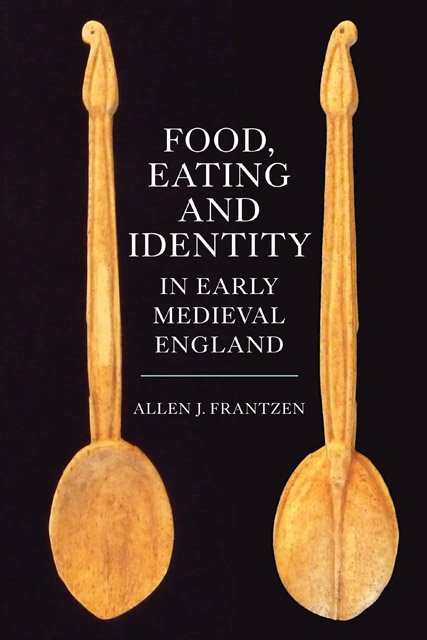11 - Conclusion: Anglo-Saxons at the Table
Published online by Cambridge University Press: 14 February 2023
Summary
“The Seasons for Fasting,” fish, and clerical discipline
One of the subjects of this book is the importance of coordinating textual and material evidence of food culture. Few texts about food are poems, making “The Seasons for Fasting” a rarity. The poem is cited by James H. Barrett, Alison M. Locker, and Callum M. Roberts as evidence of the “fish event horizon” discussed in the last chapter. I suggest that the poem should be read as an example of estates literature and grouped with other texts that lament the loss of old ways and criticize new ones. “The Seasons for Fasting” addresses a controversy about the fasting periods known as Ember days, three-day fasts that were assigned to each of the seasons of the year, the quattor anni tempora. The poem sets out two traditions for determining the Ember fasts. One places the fasts in the first week of Lent, the week following Whitsunday, the week before the autumn equinox, and the week before Christmas. The poem endorses another method that specifies the first week of March, the second week of June, the third week of September, and the week before Christmas (ll. 39–102). The latter plan was established by Gregory the Great (l. 94); the alternative tradition is dismissed as “Frankish,” bryttan Franca (l. 87).
Chadwick B. Hilton asserts that the dates of the Ember observance changed as part of the monastic reforms of the late tenth century and argues that the poem takes a “nationalistic stance” on the appropriate times for fasting. Ælfric’s De ieiunio quattuor tempora follows the pattern criticized by the poet, and so does a text in Oxford, Bodleian Library, MS Laud Misc. 482, an important eleventh-century manuscript containing penitentials and prayers. References to the “Frankish” tradition are “in a minority,” according to Kenneth Sisam, but Ælfric’s support would suggest that the matter was unsettled. The poem’s reference to Gregory the Great might be a clue to its date. The law code known as VI Æthelred (issued in 1008) urges the observance of feasts and fasts in accordance “with the highest standards of the past,” meaning as they were observed by those who observed them best, and cites Gregory as the origin of the custom.
- Type
- Chapter
- Information
- Food, Eating and Identity in Early Medieval England , pp. 246 - 258Publisher: Boydell & BrewerPrint publication year: 2014

